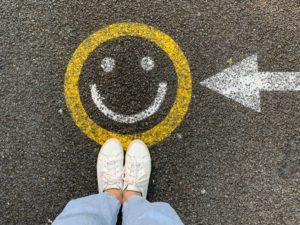Practicing Sleep Hygiene: Fight Insomnia, Fall Asleep, Stay Asleep
If you’ve had trouble sleeping, you are like 70 million individuals experiencing this.
Some tips and tricks can help you fall asleep but sometimes people neglect the most important part.

Habit.
Creating a routine that is beneficial to your sleep is incredibly important.
Sleep hygiene means that both your daytime and nighttime routine promote deep, uninterrupted sleep.
Read below to find the best habits for a good night’s sleep!
Building the Perfect Bedtime Routine for Better Sleep
The best way to perfect sleep is to practice good sleep hygiene daily.
These are the actions and steps taken before bed to make it easier for the body to rest.
Exercise
Light to moderate exercise before bed can be a great way to tire you out.
Daily exercise can increase serotonin, a mood enhancing chemical that lowers stress in the body.
You can also practice moderate to vigorous exercise in the morning to enhance mood and work off extra energy.
This in turn can help you sleep more soundly at night.
Skip caffeine or alcohol
Caffeine prevents adenosine, a molecule in the brain that allows us to feel tired.
It can be active in the body for up to two hours after consumption, so best to leave the caffeine for the morning.
On the other hand, alcohol can make us feel tired but will disturb the regular cycle of sleep, making us feel exhausted even after sleeping.
Avoid electronics
Turn off the phone, tv, and laptop, at least 30 minutes before bed.
Blue light found in these devices can excite the brain and prevent you from feeling sleepy.
The fast pace consumption of information, videos, and other content can also excite the brain, making it more difficult to fall asleep.
Make sure your room is dark
In the absence of light, the body can produce melatonin, a chemical that regulates sleep.
A dark room can signal the body that it is time for rest.
Make the room cool (between 60 and 75 degrees )
Your body is cool when it lies down. This can send a signal to the brain to rest. Taking a warm bath can also signal the body to cool, allowing the brain to relax and feel sleepy.
Have some herbal tea
Many components of herbal tea can create feelings of relaxation and tranquility.
Chamomile, lavender, lemon balm, and passionflower are all teas that can help you prepare for rest.
These teas do not have caffeine and can promote sleep, especially if they are added to a sleep routine.
Military Technique for Falling Asleep
This is a popular method of falling asleep fast, like magic.
If done consistently, it can create a habit in which you fall asleep within minutes!
Using breath and visualization, the technique is said to lead to longer, deeper sleep.
Individuals who practiced this for more than six weeks were able to fall asleep fast, regardless of the environment.
How to Practice the Military Method of Sleep
- Relax the muscles of the face.
- Drop shoulders to decrease tension and lay your hands softly by your side.
- Exhale all of the air in your lungs.
- Relax all of the muscles in your body, including the neck, arms, legs, and chest.
- Clear your mind, imagining a relaxing scene.
- Repeat the phrase “don’t think” over and over, calmly and slowly.
- Fall asleep!
The basis for the technique is calm, deep breathing, and muscle relaxation.
This enables the mind and body to calm down, allowing you to sleep faster, deeper, and more consistently.
The Takeaway
Though many individuals struggle with insomnia, there are habits you can cultivate to help fall asleep.
Creating a good nighttime routine and practicing sleep hygiene is a great way to increase health, as sleep is vital to immune health and overall wellbeing.
Meditation, breathing, eating healthy, and exercise and simple steps you can take on a path to fitness and health.
Learn simple ways to de-stress, eat a balanced diet for gut health, and remember, health starts from within!





